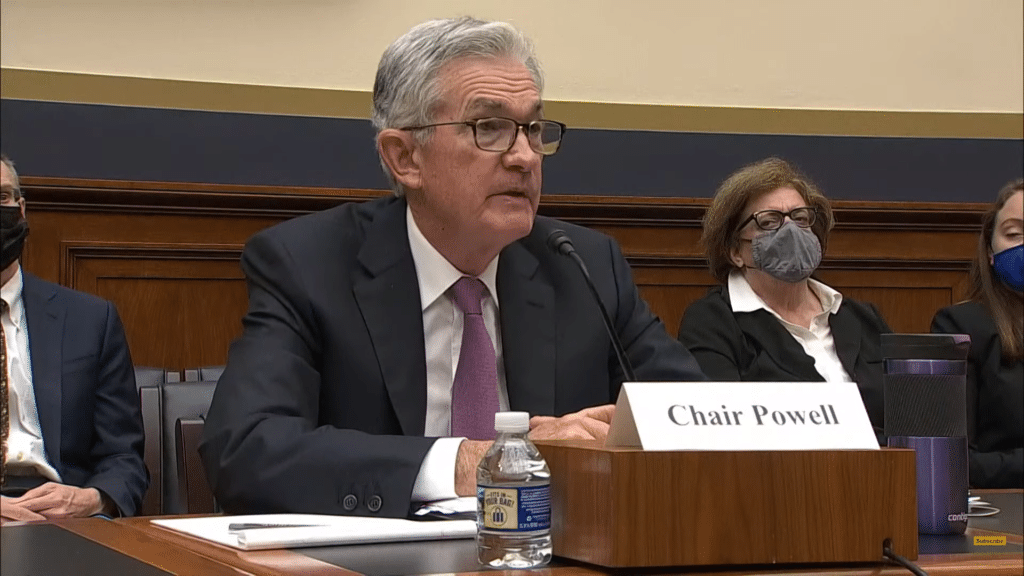Key facts:
-
Jerome Powell spoke in front of Congress, referring to bitcoin and other cryptocurrencies.
-
In July, he had said that a digital dollar would make future stablecoins unnecessary.
The president of the Federal Reserve of the United States, Jerome Powell, affirmed that the government of that country “does not intend to prohibit bitcoin and cryptocurrencies.”
Powell’s statements were given in the framework of the hearing called Summary of the response of the Treasury Department and the Federal Reserve to the pandemic. In the conference given before members of Congress, he was accompanied by Secretary of the Treasury Janet Yellen.
Specifically, the official referred to bitcoin when asked by Congressman Ted Budd about a previous claim from another of his hearings in July. At that moment, Powell had slipped the possibility of creating a central bank digital currency (CBDC) that made stablecoins and cryptocurrencies unnecessary.
However, the chairman of the Federal Reserve claimed to have been misunderstood at the time and, under Budd’s cross-examination, confirmed that the United States has no intention of banning cryptocurrencies. The exchange between the two can be seen in this fragment of the audience.
Misinterpreted or not, the truth is that Powell is one of those in charge of studying cryptocurrencies in the Joe Biden government. The chairman of the Federal Reserve is a member of a workgroup that the Presidency of the United States formed to make recommendations on the use of stable cryptocurrencies from a report to be released in December.
These twists and turns in the political arena take place in a context of record inflation in the North American country. As reported by CriptoNoticias, the June indices in this area were the highest since 2008. In this regard, Powell expressed that inflation is something for which the Federal Reserve “cannot do anything” and that it occurs as a consequence of the measures taken. by the government in the face of the crisis generated by the COVID-19 pandemic.

The opposition with China
This stance of not banning cryptocurrencies contrasts sharply with what is happening in China in recent weeks. From September 24, the Central Bank and the Government of that country decided consider illegal to all activities with cryptocurrencies. Despite this, they still operate in its territory 130 nodes of the network.
Whereas in The United States the regulatory issue seems to move down another lane, perhaps more oriented to the tax edge, and in a more progressive way. That’s what a former US prosecutor believes, Katie haun, who assured that the more analytical approach of his country will allow greater regulatory clarity in the future.

Introvert. Beer guru. Communicator. Travel fanatic. Web advocate. Certified alcohol geek. Tv buff. Subtly charming internet aficionado.
